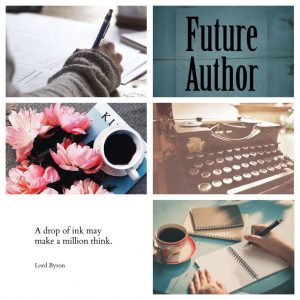 Do you remember what you were like when you were a child? You were fearless, unbridled, and free of the smudges left by other people’s opinions and motivations. If you said you were an astronaut, you were an astronaut despite the technicalities of school and space travel. But somewhere along the way, you grew and fear within you grew as well. The fear of expectation, failure, and entitlement took over and before you knew it, you couldn’t bear to call yourself an astronaut, let alone become one.
Do you remember what you were like when you were a child? You were fearless, unbridled, and free of the smudges left by other people’s opinions and motivations. If you said you were an astronaut, you were an astronaut despite the technicalities of school and space travel. But somewhere along the way, you grew and fear within you grew as well. The fear of expectation, failure, and entitlement took over and before you knew it, you couldn’t bear to call yourself an astronaut, let alone become one.
This is what happened to me. My oldest memory is that of calling myself a writer. From age three on, the answer I always gave to every adult who asked me what I wanted to be when I grew up was a writer. “Writer” became my identity. It didn’t matter if the writing was bad or if I never finished a project. I knew that somehow it would all work out, and I would find my name on a glossy, well-bound book on the shelf.
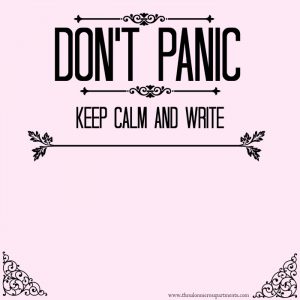
I can’t tell you when it started, but something snapped along the way. I found it uncomfortable to call myself a writer. Then I found it uncomfortable to write at all. Even after years of school, years of practice, and years of reading books, I still couldn’t seem to feel confident in the work I was doing. What was the right story, the right character, the right word? Soon, the fear became a dull excuse that manifested into too exhausted or too busy or too uninspired. Now it’s been months since I’ve touched my work, and that dream I was so sure of as a child is drifting further and further out to sea.
Unused creativity is not benign. If you find that you are called to create something and you resist that call, it will slowly eat away at you.
– Elizabeth Gilbert
I believe this to be true. I find myself resenting authors for their successes. I resent myself for my lack of discipline and confidence. And I miss my work. This must mean that the ideas and stories and characters that keep boggling my brain want to be heard. They don’t want me to leave them behind. Perhaps there is art that you have left behind too whether writing, drawing, dancing, film making, or singing.
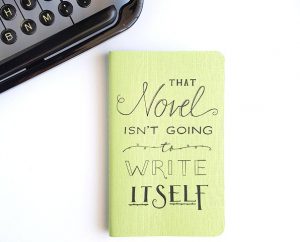
Here are three resources that might help you find the courage to work:
The Artist’s Way by Julia Cameron
This is more of a class or workshop than a self-help book. Cameron provides concrete exercises and techniques to move you past your block or fear and into a space of making things that feels genuine and authentic.
Big Magic: Creative Living beyond Fear by Elizabeth Gilbert
This book validates what you might be feeling. Gilbert uses her own experiences, and her perspective on creating something from nothing to challenge you out of your comfort zone.
Bringing Big Magic to life, this podcast features people who are struggling with creating and ask Elizabeth Gilbert for advice. Besides giving her own information and encouragement, Gilbert brings in professionals like Cheryl Strayed, Neil Gaiman, and Brene Brown to share their stories of how they conquer their fear and come to a place of fulfillment in their work.
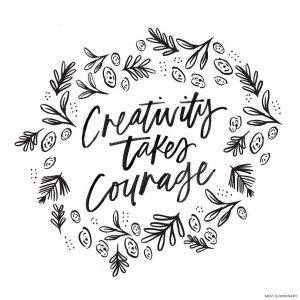
I hope these resources might kick start your creativity. Let me know if you have ever felt fearful of making things or sharing your art, and I’ll be back with another post about my journey from reader to writer.


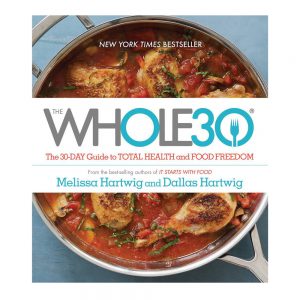
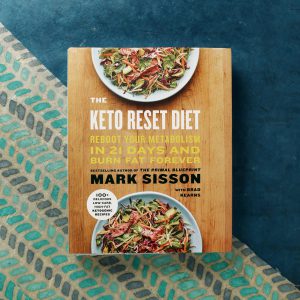
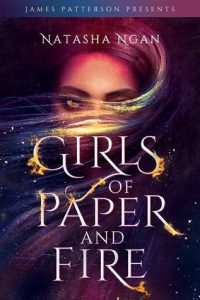 Girls of Paper and Fire
Girls of Paper and Fire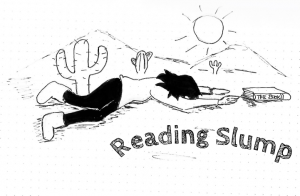

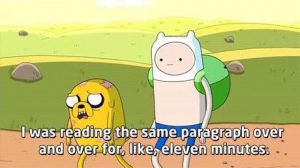
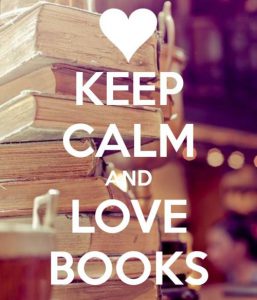
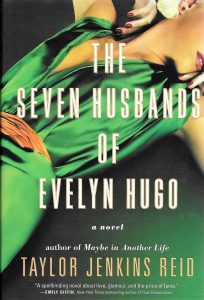
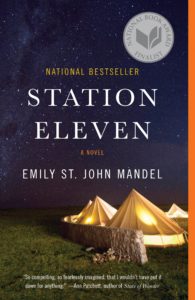
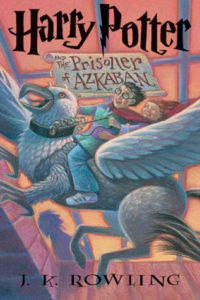 Harry Potter and the Prisoner of Azkaban
Harry Potter and the Prisoner of Azkaban
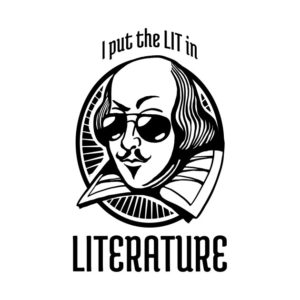 We all know him, that 16th century bard with the weird hair and a penchant for killing off everybody in his plays. You’ve probably had to endure the musings of that Prince of Denmark or the fawning of the young lovers in a high school English class and perhaps you’ve even been dragged to a bloody production a time or two. You might have even encountered one of the countless adaptations while searching for something to watch on Netflix or seen one of his quotes on a museum wall, but for most of us, Shakespeare is fairly unreachable. As Mare Winningham, a well-known actress and decorated Shakespearean performer, once said:
We all know him, that 16th century bard with the weird hair and a penchant for killing off everybody in his plays. You’ve probably had to endure the musings of that Prince of Denmark or the fawning of the young lovers in a high school English class and perhaps you’ve even been dragged to a bloody production a time or two. You might have even encountered one of the countless adaptations while searching for something to watch on Netflix or seen one of his quotes on a museum wall, but for most of us, Shakespeare is fairly unreachable. As Mare Winningham, a well-known actress and decorated Shakespearean performer, once said: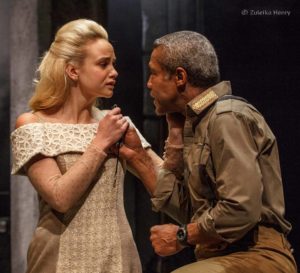 It all started with a discovery on YouTube. One of my favorite actresses is Joanna Vanderham. I loved her performance in BBC’s The Paradise, and in a passing video search of her other works, I found
It all started with a discovery on YouTube. One of my favorite actresses is Joanna Vanderham. I loved her performance in BBC’s The Paradise, and in a passing video search of her other works, I found 
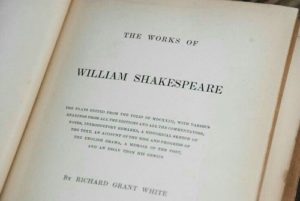 SparkNotes has this website called
SparkNotes has this website called 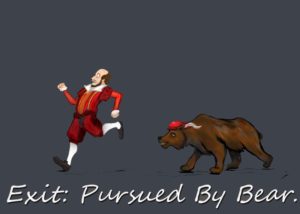 Pick a play that you’re generally interested in. It could be something as popular as Romeo and Juliet or more lighthearted like Much Ado About Nothing or The Taming of the Shrew. Then I’d recommend reading a summary of the entire story. Shakespeare isn’t about spoilers and surprises. It’s about feeling for the motivations of these characters and finding lines that are treasured gems so get a grasp of the basic plot first (and for some plays, that’s a feat in itself). Then if you can, I’d recommend renting a performance of it on Digital Theater (the prices are shown in pounds, but when you rent a show, it converts the price to dollars automatically). Watch it, have the No Fear Shakespeare tab open, and just revel in the performance, art direction, and style. After you’ve seen the play, I would then actually give reading the play on No Fear Shakespeare a chance. Read the original lines and use the translation for guidance. With the story having sunk into your soul a bit, you’ll find that lines jump out at you with so much more meaning.
Pick a play that you’re generally interested in. It could be something as popular as Romeo and Juliet or more lighthearted like Much Ado About Nothing or The Taming of the Shrew. Then I’d recommend reading a summary of the entire story. Shakespeare isn’t about spoilers and surprises. It’s about feeling for the motivations of these characters and finding lines that are treasured gems so get a grasp of the basic plot first (and for some plays, that’s a feat in itself). Then if you can, I’d recommend renting a performance of it on Digital Theater (the prices are shown in pounds, but when you rent a show, it converts the price to dollars automatically). Watch it, have the No Fear Shakespeare tab open, and just revel in the performance, art direction, and style. After you’ve seen the play, I would then actually give reading the play on No Fear Shakespeare a chance. Read the original lines and use the translation for guidance. With the story having sunk into your soul a bit, you’ll find that lines jump out at you with so much more meaning.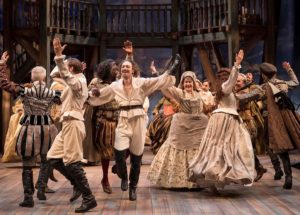
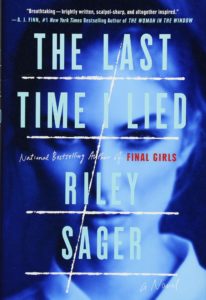
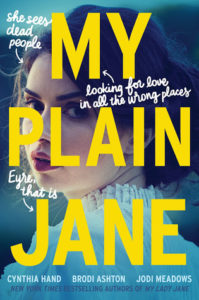 My Plain Jane
My Plain Jane